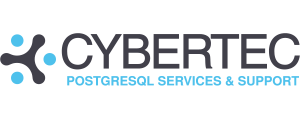Conference Code of Conduct Management & Volunteer Training
Tuesday, October 21 at 13:30–17:00
Conference Code of Conduct Management
One of the requirements for community recognition of a conference is that the conference “adopt and follow an appropriate Code of Conduct to ensure a safe and enjoyable environment for anyone who wishes to attend.” That’s easy, if you have done it before.
But what if you haven’t done one before? You need to decide whether to use an existing CoC, such as the PostgreSQL Community Code of Conduct, or create one. You need to decide who is going to be on the CoC Committee, how they will respond to incident reports, and what to do if the complaint involves a member of the conference organization team—or, worse, yet, a member of the Conference Code of Conduct Committee.
We’ll work through the entire process, with time for Q&A along the way. You’ll leave with a step-by-step plan, template documents, and a clear idea of what to do—and what *not* to do.
As the creator of the original PostgreSQL Community Code of Conduct, and the Committee Chair for the initial three year term, I have experience in building both a CoC policy and a CoC Committee from scratch. I have also managed the Code of Conduct Committee for PgConf.EU from 2023 to present, and for PgConf.Dev in 2025.
Volunteer Training
Conferences rely heavily on volunteer staff, most of whom are good at their jobs and want to do the right thing. That’s a great start, but it’s not enough. When you have 800 people from all over the world in one place, speaking multiple languages, and operating from different cultural frames, things happen, not all of them good.
An attendee may have special needs that no one knows how to accommodate. Another attendee may become agitated over an apparent small incident, or an attendee drinks too much at the social. An attendee may have unexpected situation to deal with on the spot (for example, receiving bad news in the break between sessions) that results in an emotional outburst next to the coffee station.
We’ll combine discussion and role playing (everyone gets a chance to be on stage if they wish!) to practice active listening, recognizing hidden bias, identifying underlying issues, finding workable solutions, and de-escalating conflicts.
















